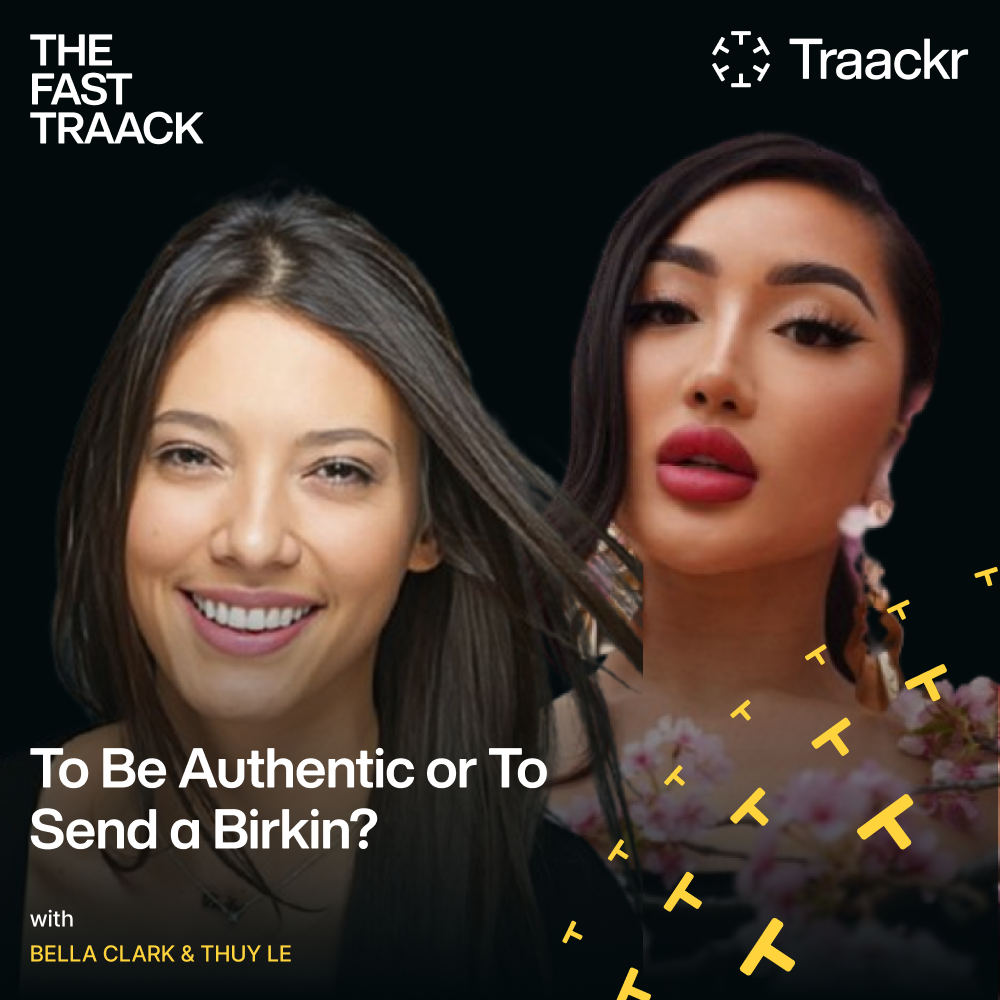3 Future Proof Influencer Marketing Strategies: Advice from a CMO

How to Build a Future Proof Influencer Marketing Strategy
Social media has traditionally been used for building brand and product awareness, but this is shifting. We’re not only seeing social media platforms become a point of sale, we’re seeing influencers directly impact sales as the last touch before conversion.
As the social, creator, and commerce worlds continue to converge, we’re all asking ourselves how to recreate the excitement of an in-person shopping experience in a digital setting.
Below are three tips from Evy Lyons, CMO of Traackr, detailing how you can adjust your influencer marketing strategy to meet that challenge.
Tip #1: Integrate influencers into every part of the marketing funnel
We know that the pandemic accelerated investment in influencer marketing. In fact, 92% of marketers said they would allocate budget towards influencer marketing in 2021, which is 18% more than the previous year.
With little-to-no in-store shopping during the 2020 holiday season, marketers saw how powerful influencers and e-commerce can be in promoting products and driving sales. Consumer’s trust in creators restructured the typical buying journey, creating the ability to go from product discovery straight to purchase.
Now, brands need to consider incorporating a strategy that activates influencers at each stage of the marketing funnel. And, as other experts have pointed out, who you pick is important because not all creators can sell.
Beekman 1802 was able to generate awareness and drive sales by working with a diverse set of TikTok influencers. To build awareness, the team tapped into consumers’ desire for education and chose creators who could provide credible and informational content, like Dr. Dustin Portela (@208skindoc) and Ava (@glowwithava).
To drive in-store sales to Ulta Beauty, the brand decided to partner with no-nonsense creators, like Laura Lee (@lauraleewatts), to promote featured products at a limited-time discounted price.
By using a range of influencers for different parts of the marketing funnel, Beekman 1802 was able to become one of the highest performing skincare brands on TikTok and sell out two product lines in Ulta.
Bonus Tip: If your objective is to drive sales, use data to find experienced social commerce influencers. Run influencer searches using keywords that are tied to bottom-of-the-funnel calls to actions like, “link in bio”, “use my code”, and “shop link”.
Tip #2: Tailor your influencer partnerships
“You should be thinking about all of your channels and how influencer partnerships can support your business objectives. It’s important to design an influencer marketing strategy that is very specific to your ultimate sales objectives.” — Evy Lyons, CMO of Traackr
There are two specific types of partnerships that come to mind.
1. Campaign-specific partnerships: These partnerships are short-term and typically last for one campaign or activation. They’re great for giving extra juice to a single initiative, or for experimenting with new audiences, content types, or platforms. Revlon is a great example of a brand that used this type of short-term partnership (in concert with longer term partners) well. Learn how they partnered with unexpected influencers for a difficult product launch (hint: it involves superhero cosplay).
2. “Always-On” Relationships: Developing long-term creator partnerships you grow alongside your partners and strengthen brand affinity - leading to more impactful campaigns. For example, Eau Thermale Avène realized that an authentic, engaging and long-term influencer strategy would be the best way to tap into the power of influencer marketing while keeping its values center stage. By using this strategy, Avène gained significant organic love! Even though they only had 30 paid campaigns in place, they received a total of 430 mentions. That organic content led to a 60% increase in engagements, and a 300% increase in reach during 2020 compared to 2019.
No matter what type of partnership you decide to create, keep in mind that the best content is authentic to the creator’s brand, not yours. Brands are successful when they give briefs that are focused on very specific objectives, instead of dictating content. Influencers know their audience best, so make sure you give them creative freedom!
Bonus Tip: Deepen the relationships with your creators by building strong, nuanced relationships. Here are eight creative ways to add value for your brand while also deepening your creator relationships.
Tip #3: Build an internal infrastructure
In order to take advantage of new platforms or trends that emerge, you need to set yourself up by building an internal infrastructure that can track what is working.
“You need a system in place that allows you to efficiently run a lot of different experiments and track where each dollar or euro is going.” — Evy Lyons, CMO of Traackr
Influencer marketing moves at such a fast pace that it can be hard to share learnings across various teams and markets. This is why it’s critical to organize with an influencer marketing platform that serves as a system of record - meaning all influencer partner data, communications, and reporting are managed and stored in one place.
Make sure your platform can support you by:
- Unifying influencer marketing KPIs and measurement practices
- Providing true market benchmarking and actionable insights
- Rolling out best practices across teams and regions
- Supporting all types of campaigns from organic to paid to affiliate
- Centralizing budget management, optimization, and influencer payments
See how Colgate-Palmolive reduced influencer campaign costs by 40% with Traackr’s system of record.
Watch the full interview of Evy Lyons and Cosmetics Business

Listen to Bella Clark, Head of Influencer and Partnerships at Lipton, and content creator, Thuy Le, share why authenticity outshines extravagance when it comes to creator partnerships.
Listen nowSee which brands are leading the way in influencer marketing with our real-time performance leaderboard.
View brand leaderboard
What Top & Rising Brands Are Teaching Us About Influencer Marketing in 2026
.jpg)
Traackr Welcomes Ramzi Saba as Chief Technology Officer
_Nick_Fancher_Photos_ID6169.jpg)
Unlocking Creator Value for Global Brands in the Age of AI
Level up your creator marketing expertise
Get industry insights and updates straight to your inbox.
